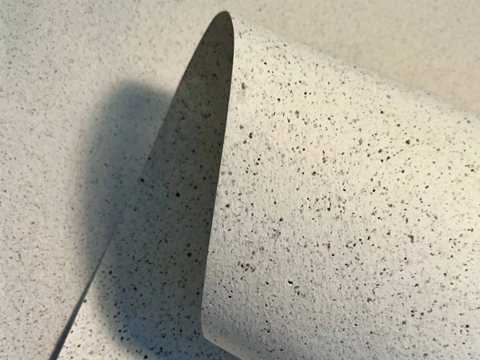
In a reported first for seaweed-based packaging, PlantSea’s packaging materials have received OPRL’s ‘Recycle’ label, indicating their recyclability in standard paper waste streams.
Available in a range of weights, PlantSea’s materials blend fibres derived from seaweed with recycled and virgin paper fibres. The seaweed is reportedly a by-product of the UK aquaculture industry, and PlantSea hopes that its utilization will benefit marine conservation and sea life.
Now the materials have been tested in line with the CEPI v2 protocol and are apparently compatible with recycling processes at a standard paper mill. As such, PlantSea intends for its seaweed-based packaging to replace paper and card in box, bag, and stationery applications.
OPRL explains on its site that, where possible, its labels ‘take a binary approach’ in line with ISO 14021. Its ‘Recycle’ label indicates that at least 75% of UK local authorities collect the packaging in question for sorting, processing, and resale as recyclate.
“It is always exciting to see innovation and the successful application of novel materials in packaging,” said Alice Harlock, director of Technical and Member Services at OPRL. “As businesses look to adapt or replace current packaging types to meet sustainability goals or legislation, OPRL is keen to support them with labelling that helps consumers make the right choices around recycling.”
“Achieving the OPRL label has been a huge boost,” added PlantSea co-founder and CTO Gianmarco Sanfratello. “It is easy to claim that products are fully recyclable, but independent assessment brings a credibility that is especially valuable for a start-up and innovation business. It helps us to demonstrate our commitment to honesty and to giving consumers a choice.”
PlantSea also offers other seaweed-based solutions, including water-soluble film and agricultural mulch.
In similar news, the Dutch Government recently recognized Notpla’s seaweed-based packaging as the ‘first and only’ plastic-free material in line with the EU Single-Use Plastics Directive. Going forward, it is anticipated to replace a minimum of 15 million single-use plastic packaging units in the Netherlands.
We followed up in a conversation with Pierre-Yves Paslier, co-founder and co-CEO of Notpla, to learn more about how the company achieved this certification.
Meanwhile, Somater and Eranova are sourcing green algae from the Étang de Berre and converting it into biobased packaging – hoping to phase out fossil-based polymers in favour of seaweed-based materials.
If you liked this story, you might also enjoy:
Report: The ultimate guide to global plastic sustainability regulation
The Brief: Oxo-(bio)degradables: the who, what, and why of breaking down fossil-based plastics
Sustainable Packaging Summit: How Kraft-Heinz uses collaboration to drive innovation
The Brief: Using ocean-bound plastic in packaging – how, why and should we?














No comments yet